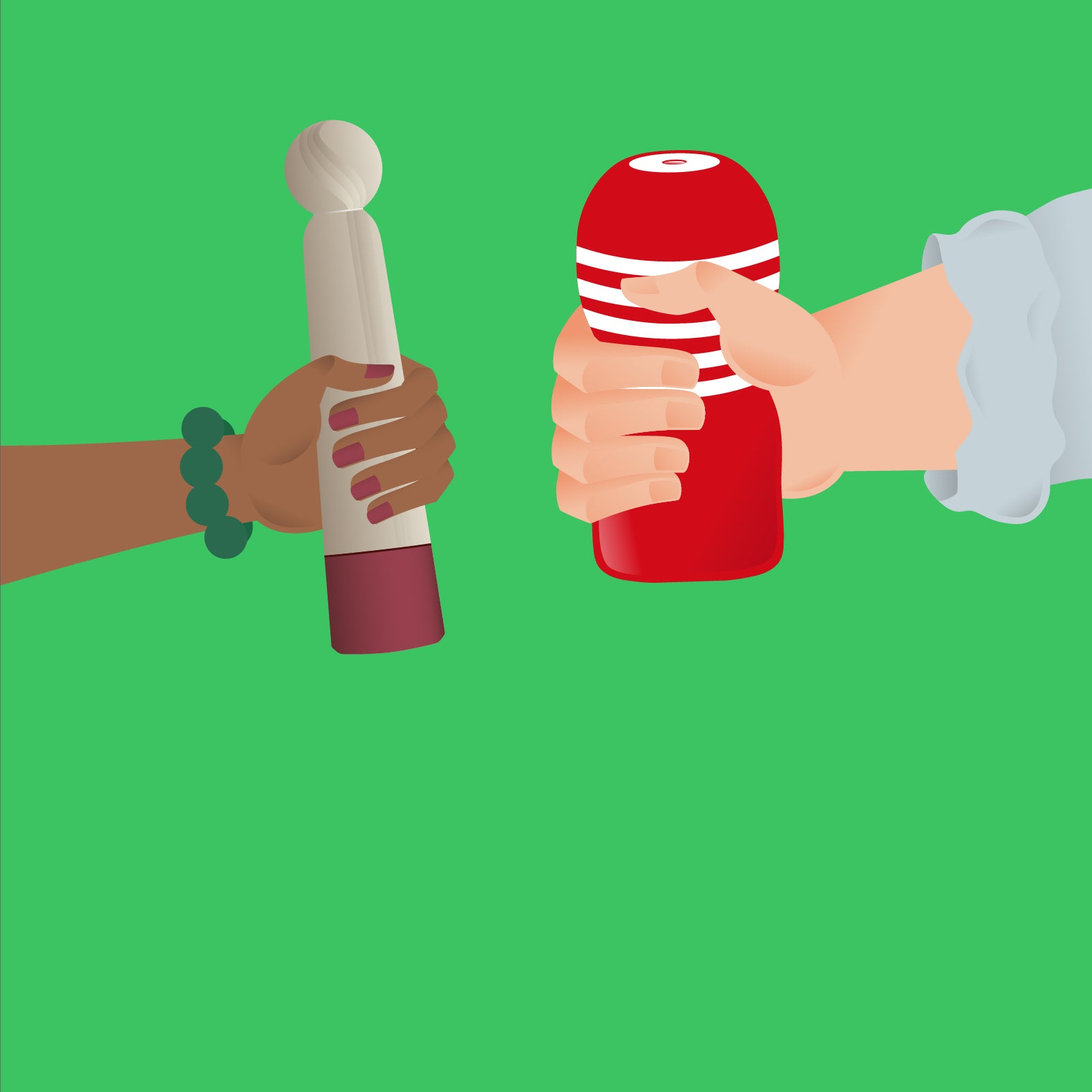
Masturbation Therapy - Two Distinct Types of Treatment
When you hear the phrase ‘masturbation therapy’ you might initially think that this would only refer to therapy for issues surrounding addiction. While this is one type of masturbation therapy, it can also refer to using masturbation as a treatment for those suffering from issues ranging from erectile dysfunction, premature ejaculation and more.
In this article, we’re going to be exploring the two distinct types of masturbation therapy available, their purpose, how they work and why both might be beneficial to different people.
Contents
Two Types of Masturbation Therapy

Masturbation therapy isn’t just for people who may be finding masturbation or sex addictions to be affecting their daily life. However, there is another form of these kinds of treatments. Here’s a short breakdown of the two forms of masturbation therapy we’ll be discussing:
- Masturbation Coaching - Predominantly used by sex therapists to help overcome both physical and mental issues surrounding masturbation and sex.
- Therapy for Masturbation/Sex Addiction - Provided by various specialist therapists to help people whose masturbation and/or sex addictions are affecting their everyday lives.
We’ll be taking a deeper dive into both of these distinct types of treatment, starting with masturbation coaching.
Masturbation Coaching

Masturbation coaching may sound like an odd profession, but it is a real job that specifically helps people struggling with sexual dysfunction, allowing them to gain more confidence in their bodies. Masturbation coaching is one of the best ways that sex therapists and coaches can help with issues such as erectile dysfunction, premature ejaculation, and an inability to orgasm. It isn’t just limited to this, however, as masturbation coaching can also be valuable for those who just want to explore a method of improving their general sex skills or enhance the pleasure they experience.
Exploring ‘Mindful Masturbation’

A critical method of masturbation coaching focuses on dealing with the present and future goals of the client. One thing that sex therapists will discuss with the client is thought and relationship patterns to discern if there is a need for a more intensive therapy plan. Outside of that, the emphasis is firmly on how you can improve any concerns, issues, or worries that you have in the present through ‘mindful masturbation'.
For the majority of sex therapists, this means keeping your focus on your body and not getting caught up in performance anxiety. A way to do this is to learn to concentrate on your physical experience and senses.
Experimenting with the Body and Senses

Sex therapists often note that people may get caught up in focusing on one area of the body and how that feels or performs specifically. For example, this fixed-patterned approach to masturbation can be the cause of problems, such as what is called the ‘death grip’ for people with penises. Instead, through masturbation coaching, you are encouraged to explore your body and senses. You can start from the toes, working your way up the body with touches that may help you find other zones of pleasure. Another way of exploring is through the different senses, for example, discovering if certain smells or tastes can help to stimulate more arousal.
Exploring yourself in this way can help you to become more comfortable with your body and ease the negative feelings some may experience while masturbating. This, in turn, may help to negate issues such as erectile dysfunction, premature ejaculation, etc.
Therapy for Masturbation/Sex Addiction

Of the two types of masturbation therapy we’re discussing, therapy for masturbation and/or sex addiction might be the better known. Although people may not quite understand the exact processes and reasons why this treatment helps people, if masturbation or sex starts to harm your daily life, and you find it difficult to control, it might be a good idea to seek masturbation therapy.
Talking with a Professional

If you feel you need to take steps to develop a healthier relationship with masturbating, reduce the frequency, or help in preventing it from harming your relationships, you should talk with your doctor. They can assess your situation and refer you to a counselor, psychologist, or psychiatrist who specializes in sexual health. From there, these healthcare professionals can work out the underlying causes that may be causing your relationship with masturbation and/or sex to be causing harm in other areas of your life.
The negative impacts of excessive masturbation may include, but not be limited to, some of the following:
- Physical health issues such as skin irritation, swelling, infections, etc.
- Inability to connect with a sexual partner
- Social isolation
- Excessive viewing of pornographic content
- Inability to perform important life tasks (e.g., parenting, working, etc)
- Stress and/or lowered self-esteem, feelings of guilt or shame, etc.
- Depression, anxiety, and other mental health complications
If any of these affect you, then it may be worth speaking to your doctor to assess your situation further and possibly get started on treatment.
Working on the Causes

Once the individual causes for excessive masturbation have been evaluated, your healthcare professional can help you to come up with a plan to work through these issues. This may include working on a plan to reduce the amount of masturbation you engage in, reducing or stopping viewing pornography, etc. Therapists may have the understanding, experience, and tools to help you work through your specific issues. It is likely that many people who seek this kind of help also suffer from compounding negative thoughts and emotions such as anxiety, depression, and shame. It is important to remember that these emotions are natural, and can be overcome.
Summary
There are two key types of masturbation therapy available with distinctly different types of treatment. Some people may feel they need support in becoming more capable and comfortable in certain physical aspects of masturbation. Others may feel they need more support mentally in engaging in masturbation or in curbing the habit in a healthy manner. There is a form of therapy out there to help you with all those goals. The key thing to keep in mind is that masturbation is a natural and beneficial part of self-care when utilized correctly.
If masturbation is ever harming your life, whether it’s physically or emotionally, you should reach out to a doctor or other trusted professional to gain their advice on how to take steps in improving your relationship with masturbation.





